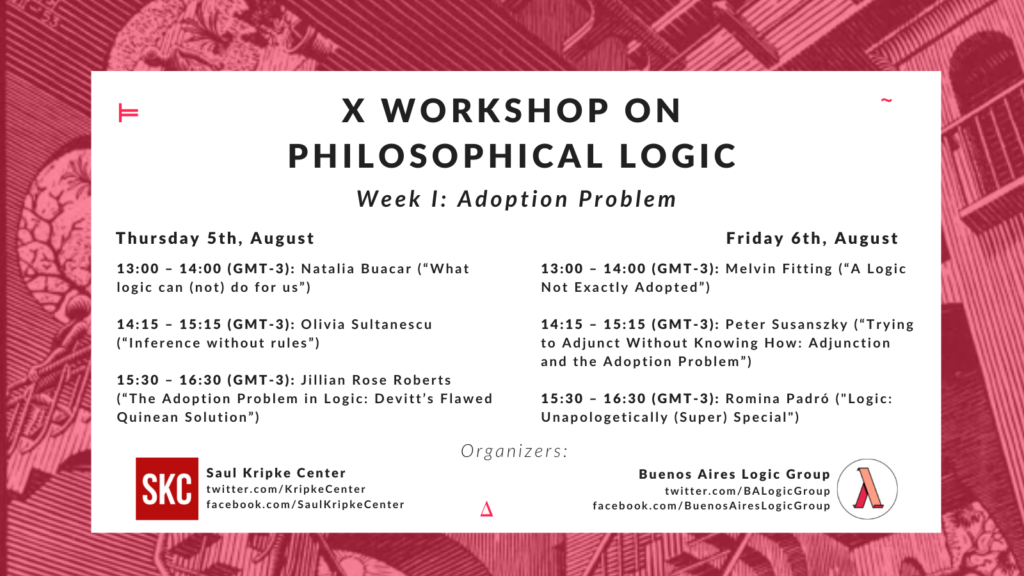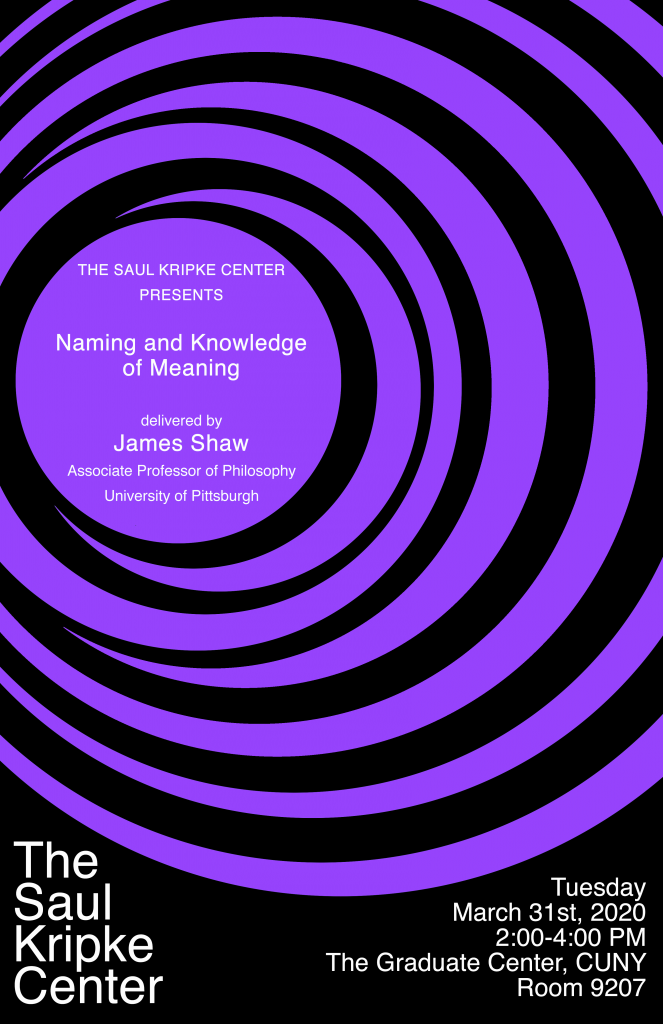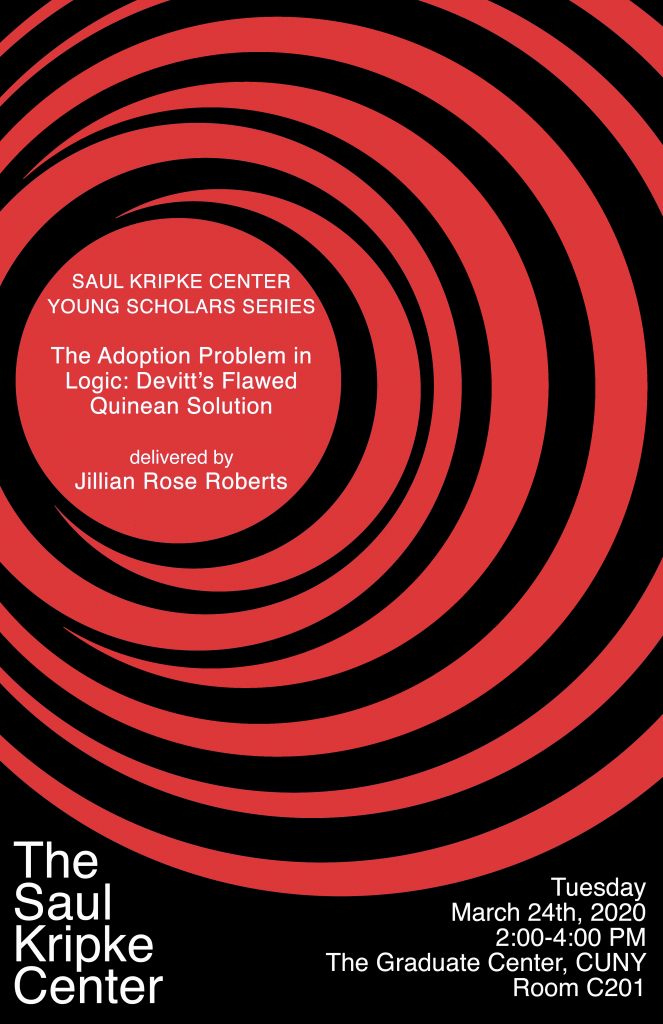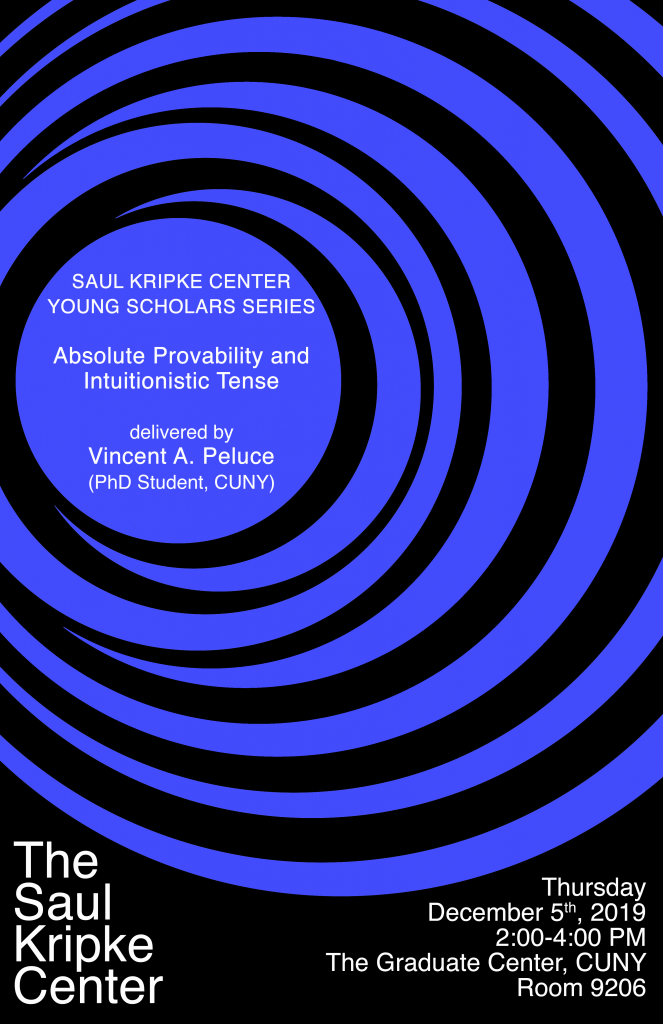The Saul Kripke Center is pleased to announce that William Nava (PhD student, Philosophy, NYU) will deliver the eighth Saul Kripke Center Young Scholars Series talk on Friday, October 8, 2021, from 1:00 to 3:00 pm (NY time) via Zoom. The talk is free and open to all, but those interested in attending should email the Saul Kripke Center in advance to register if they are not already on the Saul Kripke Center’s mailing list.
Title: The significance and scope of the adoption problem
Abstract: The adoption problem is an argument purporting to show that certain logical inference rules cannot be rationally ‘adopted’—roughly because one would need to already be guided by the inference rules in question to go about adopting them. In this talk, I’ll first argue that this argument is best understood as showing that certain rules are necessary for adoption of rules in general (where their own unadoptability is then a corollary). I’ll then defend the argument from the objection that the notion of adoption is too narrow for the argument to be relevant to logical debates. Finally, I’ll consider the question of just which rules the argument applies to. I conclude that the argument does not apply to any classical inference rules in full generality, but only to somewhat ad hoc restrictions of some of them. On the other hand, I’ll also show that the argument does apply to the transparent truth rules—or, more precisely, to restrictions of them that suffice to generate paradox. What falls out of these considerations is an ur-logic to which everyone must subscribe on pain of inability to adopt any new rules at all; and which, though quite minimal, is incompatible with classical logic by virtue of including the truth rules.





